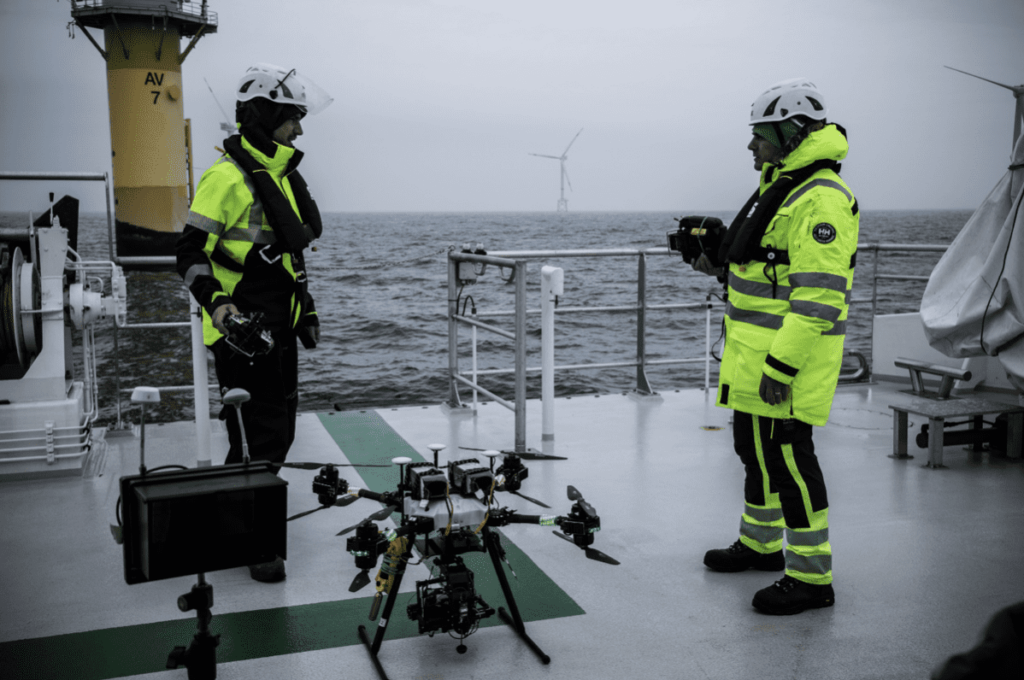



HD Air Studio’s multi-sensor gimbals offer many opportunities for commercial UAV operations. They can be equipped with payloads such as thermal cameras, LiDARs, FPV cameras, lasers or radars, with each of the sensors responsible for collecting different types of data.
HD Air Studio designed and manufactured a custom gimbal equipped with three different sensors as part of an aerial solution designed to aid marine search and rescue operations.
This new custom gimbal included a Wiris Pro thermal camera, a Mako G IR camera, and a Livox LIDAR. Wiris Pro thermal camera is equipped with an LWIR microbolometric sensor with 640×512 px resolution (in the 7.5 – 13.5 μm range). Mako G IR is an infrared camera and Livox is LIDAR that can detect objects as far as 260 meters away.
A drone with this camera stabilizer can search using thermal imaging and neural networks for detection and classification. During navigation, the gimbal is mostly pointing down, because the thermal camera needs to be directed towards the water.
This type of gimbal can also be used for projects where object tracking are primary. The tracking may happen manually, via RC, or autonomously. Switching between control modes on the gimbal is easy, and it is therefore easy to change between different applications.
HD Air Studio’s priority is making sure that the gimbal does not affect the drone airtime. One of the company’s off-the-shelf camera gimbal stabilizers weighs just 600g, with the ability to carry 800g payloads. Achieving an optimum weight-to-carry ratio, when a gimbal is housing a number of sensors simultaneously, is a must. The miniaturization of sensors helps with this. HD Air Studio’s camera stabilizers are robust enough to carry two or three payloads, but are not heavy enough to reduce the airtime.
The company combines aluminium, steel and plastic CNC machining, composites treatment and different 3D prints, including precise techniques like multi-jet fusion, to produce high-quality gimbal prototypes which are equal to mass-production camera stabilizers.
As drone inspections of various assets are frequently conducted in difficult weather conditions, HD Air Studio designs weather sealings or enclosures that can be seamlessly integrated with a multi-sensor gimbal. HD Air Studio designed a custom multi-sensor gimbal for an Italian drone service provider, where a special enclosure for protection from harsh weather conditions was essential. The gimbal, with Canon 5dS, LiDAR, and FPV camera onboard, is used to conduct offshore wind turbine inspections in windy and rainy conditions. HD Air Studio therefore used an IP65-rated protection enclosure.







Related Posts
New Drone Fires Thales Missile in Unmanned Air Combat Milestone
UAS Startup Accelerator Awards 3M in Funding
US Navy Orders Unmanned Tactical Resupply Aircraft